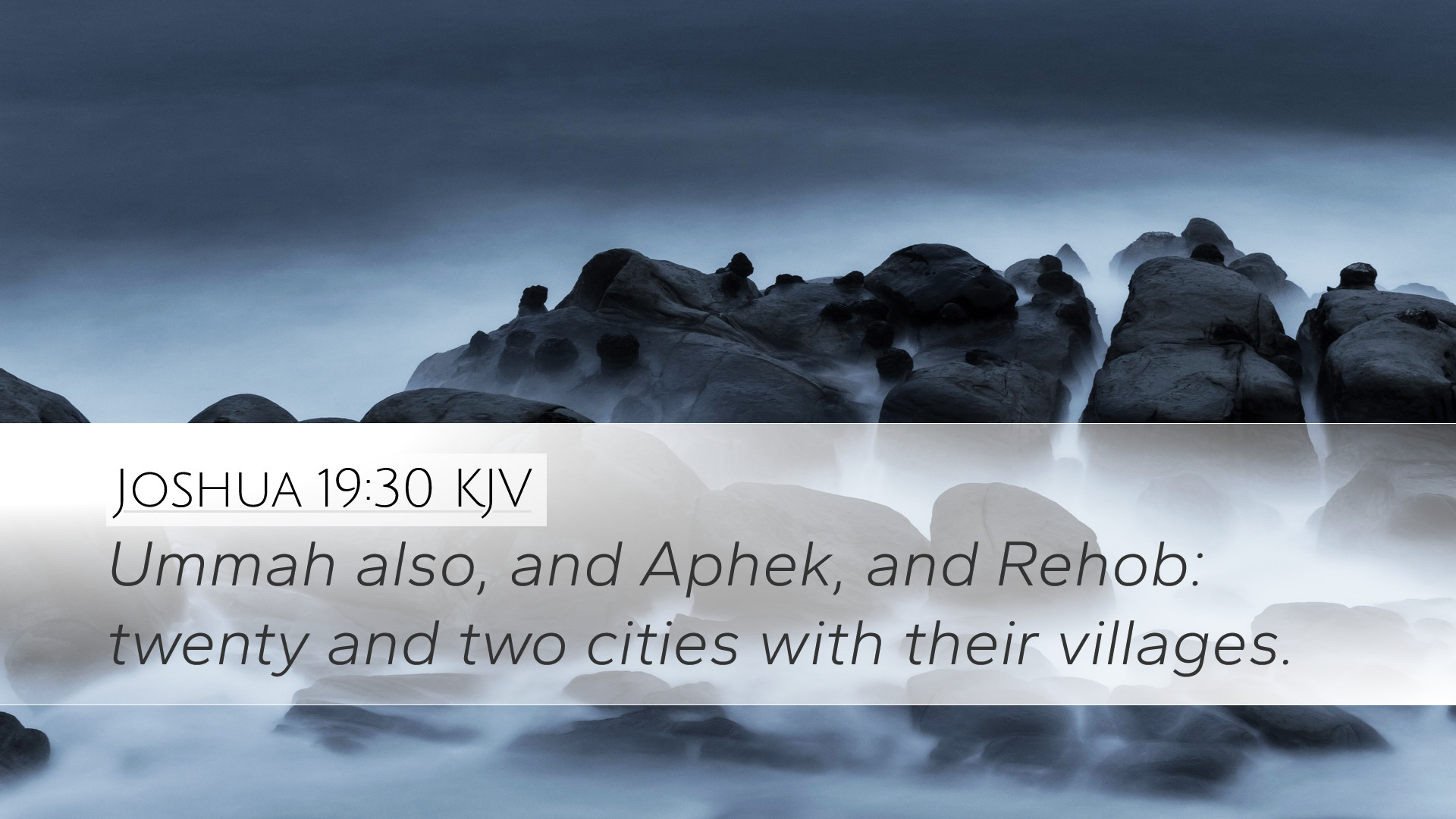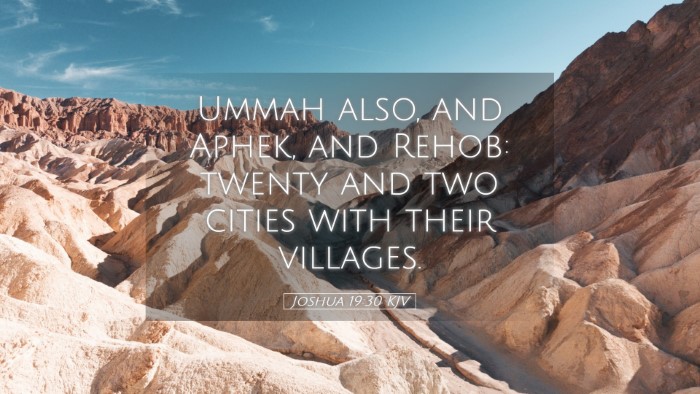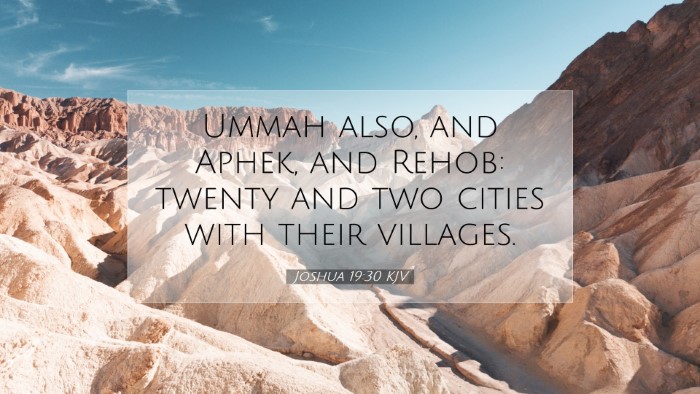Commentary on Joshua 19:30
Text of the Verse: "This is the coast of the children of Dan according to their families, these cities with their villages."
Introduction
The allocation of land among the tribes of Israel, as reflected in Joshua 19:30, elucidates the divine order and providence exercised throughout the settlement in Canaan. This verse marks a significant moment, as it details the borders of the tribe of Dan, which holds theological and practical implications for understanding Israel's structure and God's promises.
Exegetical Analysis
This verse is situated in a passage that details the distribution of the land among the Israelite tribes after their conquest of Canaan. The phrase "according to their families" indicates the importance of familial lines in the allocation process, reinforcing the significance of inheritance and belonging in ancient Israel.
Geographical Context
The mention of Dan’s coastal boundaries points to the pragmatic approach of the Israelites in the land's division. The tribe of Dan, despite its initial area, would later face challenges in fully conquering their assigned territory, leading to a migration and settlement in a different region, which is an important narrative thread in the book of Judges.
Theological Insights
The selection of land allocations is a manifestation of God’s providential care. Each tribe's portion symbolizes divine promise fulfilled and anticipates the New Testament understanding of inheritance in Christ. This verse also emphasizes the communal identity of Israel, which is both ethnic and covenantal.
Insights from Public Domain Commentaries
Matthew Henry's Commentary
Matthew Henry emphasizes that the boundaries enumerated serve not only as geographical markers but also as spiritual lessons. Henry notes the symbolism of land as synonymous with God's blessings and presence. The tribulation faced by the Danites, who later struggled to secure their inheritance, serves as a cautionary tale regarding the importance of faithfulness in stewardship and the dangers of complacency.
Albert Barnes’ Notes on the Bible
Albert Barnes provides further insight into the sociopolitical implications of land assignments. He points out that the cities mentioned were not just physical locations but represented centers of worship, community, and identity for the tribes. The delineation of Dan's borders illustrates the blend of physical and spiritual lineage in the context of communal worship and societal order.
Adam Clarke’s Commentary
Adam Clarke adds depth by discussing the historical interplay of land and identity in Israel's history. Clarke notes the irony surrounding Dan’s continued struggles, which serves as an admonition regarding the commitment to God's commandments. This commentary emphasizes the need for a faithful response to God’s calling in the context of communal blessings and responsibilities.
Practical Applications
For pastors and theologians, Joshua 19:30 exemplifies the need for a communal understanding of God's blessings. It fosters reflection on stewardship, communal responsibility, and the importance of faithfulness to the divine calling. The allocation of land can serve as a metaphor for spiritual inheritance and the responsibilities that come with it.
- Faithfulness: Just as the Danites did not fully occupy their assigned territory, believers today face the challenge of claiming the spiritual inheritance promised by Christ.
- Community Identity: The tribal divisions can be a reminder of the importance of identity within the Body of Christ, encouraging unity amid diversity.
- Stewardship: The land's dedication to God underscores the importance of intentional stewardship of our blessings and resources.
Conclusion
In summary, Joshua 19:30 invites a wealth of reflections for the modern believer. It offers a view into the sociocultural structure of Israel while providing theological and practical implications for life today. The careful delineation of land reflects God's sovereign hand in history, inviting believers to consider their lives in the context of divine purpose and community stewardship.


